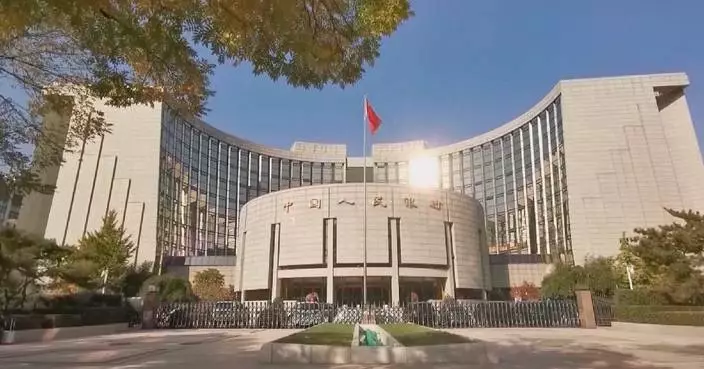China has steadily promoted institutional opening-up of the financial market, and expanded connectivity between domestic and overseas financial markets.
In terms of financial market opening-up, efforts have been made to continue to improve connectivity schemes between the capital markets of the Chinese mainland and the Hong Kong Special Administrative Region (HKSAR), including the Shanghai-Hong Kong and Shenzhen-Hong Kong stock connects.
This April, China's securities regulator the China Securities Regulatory Commission (CSRC) announced five measures to boost cooperation between the capital markets of the Chinese mainland and Hong Kong. The measures include the expansion of eligible exchange-traded funds (ETFs) under the two stock connect schemes, the incorporation of real estate investment trusts (REITs) into the schemes, the enhancement of the mutual recognition of funds and the support for the listing of leading mainland companies in the Hong Kong market.
"Foreign investors can easily participate in stock trading on two mainland exchanges -- the Shenzhen Stock Exchange and the Shanghai Stock Exchange, through the stock connect schemes. This will make it much easier for them to share the dividends of China's development," said Bonnie Y Chan, the Chief Executive Officer of the Hong Kong Exchanges and Clearing Limited (HKEX).
China has also stepped up efforts to provide greater convenience for foreign institutions to conduct business in the country.
According to CSRC, as of the end of October, it has approved 25 foreign-controlled or wholly-owned securities, funds and futures companies and granted five foreign banks fund custody licenses. And 35 wholly foreign-owned or joint-venture private securities investment fund managers have been registered with the Asset Management Association of China (AMAC).
"We have always emphasized the principles of national treatment and negative list. So after foreign capital enters the market, we have always treated domestic and foreign capital equally, increasing the predictability and transparency of our system," said Shen Bing, the director of the institutions department at the CSRC.
China has revised rules to ease foreign strategic investment in listed firms.
This November, six government departments including the Ministry of Commerce and the CSRC revised rules to allow foreign natural persons to make strategic investment in listed companies, a change from the old rules that only allowed foreign legal persons or organizations to make such investment. Capital requirement is also lowered under the new rules for foreign investors that do not become the controlling shareholders in listed firms.
Tian Xuan, the Dean of the National Institute of Financial Research at Tsinghua University said that the move will lower financing costs for domestic companies, allowing them to focus on long-term investment and innovation.
While working on attracting foreign investment, China has taken measures to encourage domestic enterprises to expand overseas.
Since the beginning of this year, the CSRC has actively helped domestic enterprises go public overseas, especially offering key support to enterprises with strong technological innovation capabilities and large financing needs.
As of the end of October, 195 companies have completed the filing procedures of their first overseas listings.
"This April, the CSRC issued 16 measures for the capital market to serve the high-level development of technology enterprises, proposing to support tech firms to go public overseas in accordance with laws and regulations, and to implement the overseas listing registration management system. By providing smoother channels and conditions, it pledges to help enterprises grow their business through the international capital market, while ensuring the transparency and effectiveness of supervision, to enhance the international competitiveness of enterprises," said Li Zhan, the chief economist of the research department at the China Merchants Fund.

China steadily pushes forward financial opening-up




















































